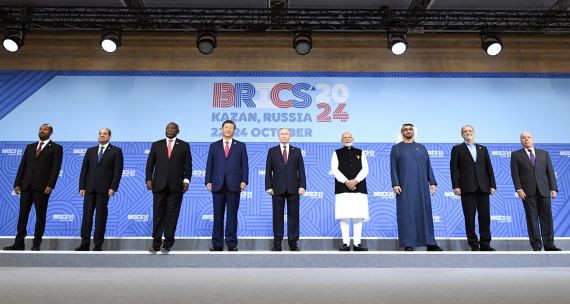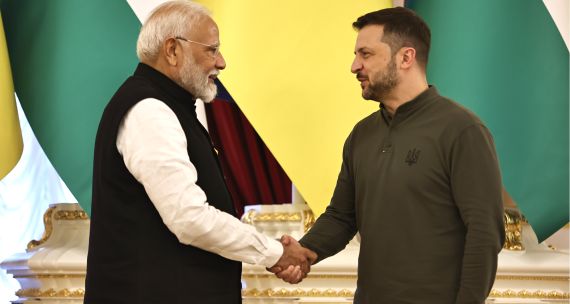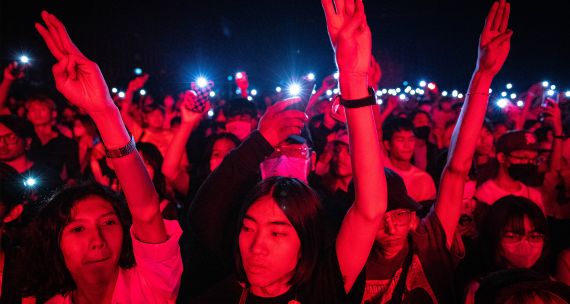Langara College students Willy Sin and Lucy Morrow are currently living and working in Noida, India, for four months as participants in the APF Canada-Langara India Connect program. Now fully immersed in the corporate and community culture of Noida, a modern and bustling tech hub just outside of the Indian capital of New Delhi, the two students have been attending cricket matches, family weddings and innumerable social events – typically centred around good food and great company.
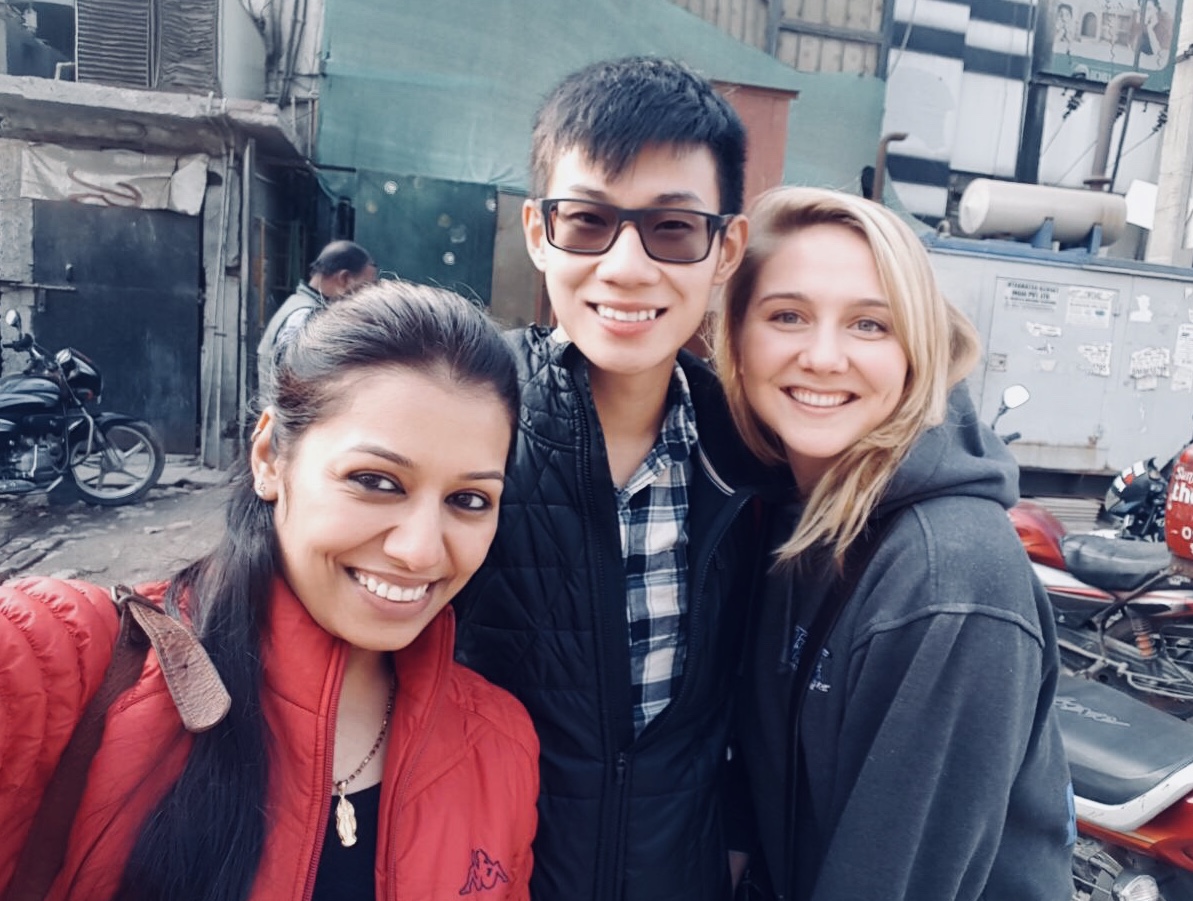
We checked in recently with Lucy and Willy to find out what they’re learning about work, life, and having fun in this very dynamic part of the world.
First, tell us a bit about where you’re working – Optimus Information – and what your roles are.
Lucy: Optimus Information is a software outsourcing company based in Vancouver, Canada. They develop secure websites and software applications, offer data analytic services to help companies make more informed decisions, and provide software testing to verify that applications and websites are running smoothly. The company’s headquarters are in Vancouver but most of the ‘behind the scenes’ work happens at their delivery centre in Noida.
As a marketing intern and one of the few employees who is not a computer software engineer, I’m learning valuable technical skills that I’m able to combine with the marketing skills I’ve learned at Langara. Currently, I’m conducting focus groups, as well as designing and analyzing questionnaires in an effort to increase employee engagement on our internal social networking platform. Next, I’ll be working with a graphic designer to make a video orientation for new hires. When it’s finished, the video will be presented to the company’s co-founder and Head of India Operations, as well as the sales/marketing team back in Vancouver.
Willy: I’m part of the development team, and am currently developing an application that will communicate between a card reader and an online check-in site. The rest of the development team is working on several high-profile companies, some of which are located in Vancouver.
India is a great place to learn about the tech sector. Everyone here is willing to put in extra time to learn the newest technology. Noida is one of the technological hubs in India and is filled with brand-new buildings to cater to computer developing companies.
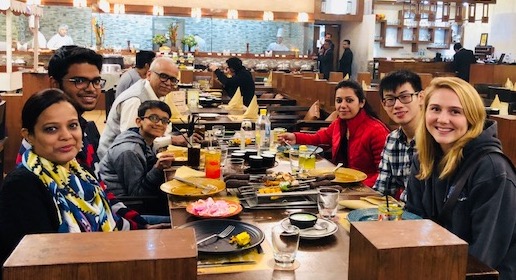
What do you notice about working in an Indian office that is different from working in a Canadian office?
Lucy: I don’t have much experience working in a Canadian office, but I can still comment on the office culture here at Optimus in India. One thing I’ve noticed is that the corporate hierarchy here seems to be flatter – the Head of India Operations works in a cubicle just like the rest of us, and he takes a personal interest in knowing and asking about people’s lives. He even joins us for lunch on a daily basis.
Also, there is a lot of emphasis in this company on ‘work-life integration.’ In practice, that means that employees strive to perform their absolute best while at work, but they are also encouraged to take fun breaks throughout the day.
Willy: That’s right. Everyone works hard for a few hours, then takes a tea break with co-workers. Towards the end of the day, it’s not uncommon to play a few games of table tennis or carrom [a kind of coin-flicking game similar to pool, but using your fingers]. I even played a quick match of cricket at a nearby field. Many of my co-workers ask several people to participate in something called “health master challenge,” whereby a group of us get together during one of our breaks to do push-ups and sit-ups, and so on.
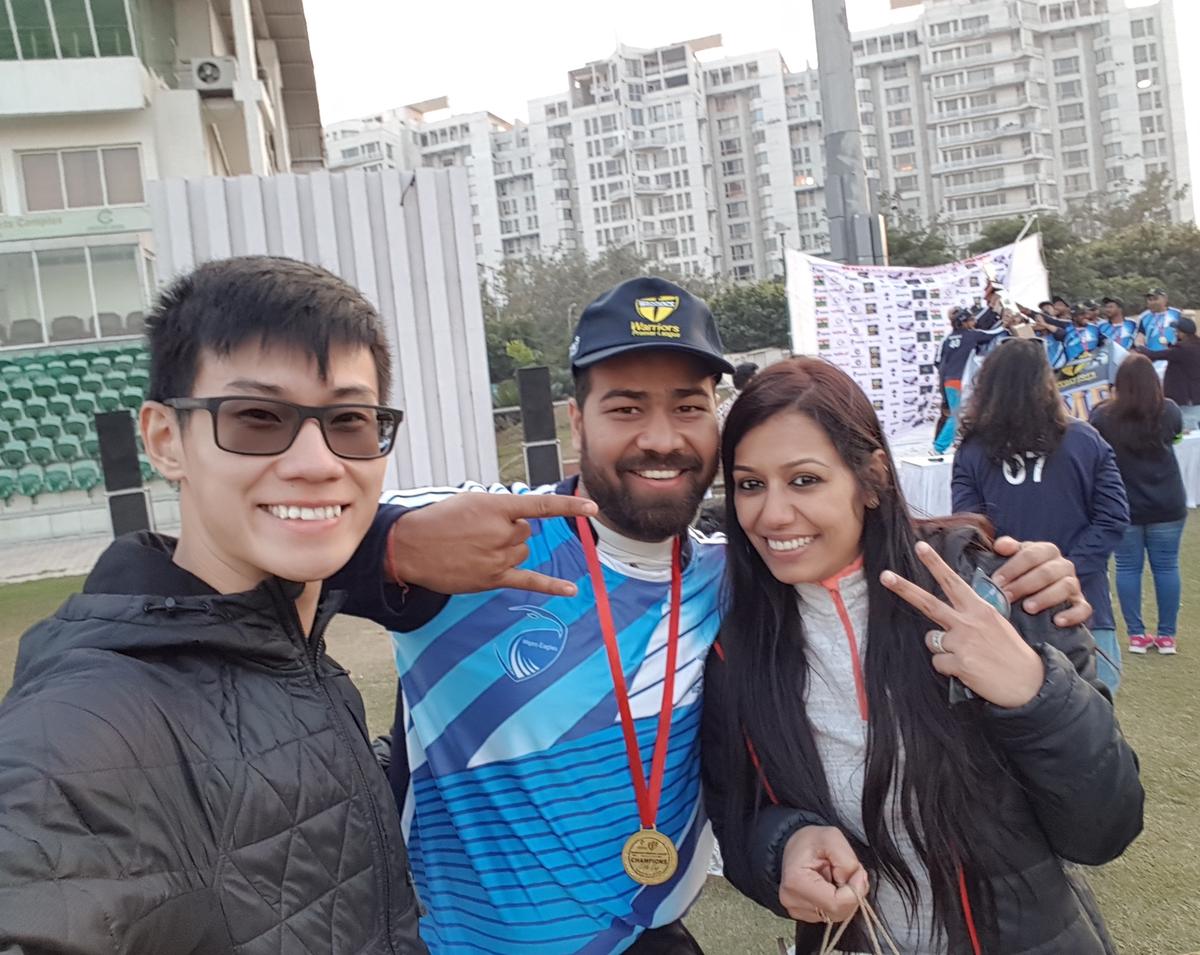
Another thing I learned is that many companies here require their employees to live within 10-15 kilometers from their workplace. The reasoning behind this is to prevent long commuting times during rush hour because it’s not unusual here to take 30 minutes to travel just one kilometer! I’ve noticed that another benefit is that when everyone lives close to one another, it helps foster a close bond between co-workers because there are fewer obstacles to hanging out outside of work. You’re also travelling back home together so there’s plenty of time to talk and to get to know your co-workers on a personal level.
You’ve both talked about how in some ways, food and eating are different in India than in Canada. Tell us more about that.
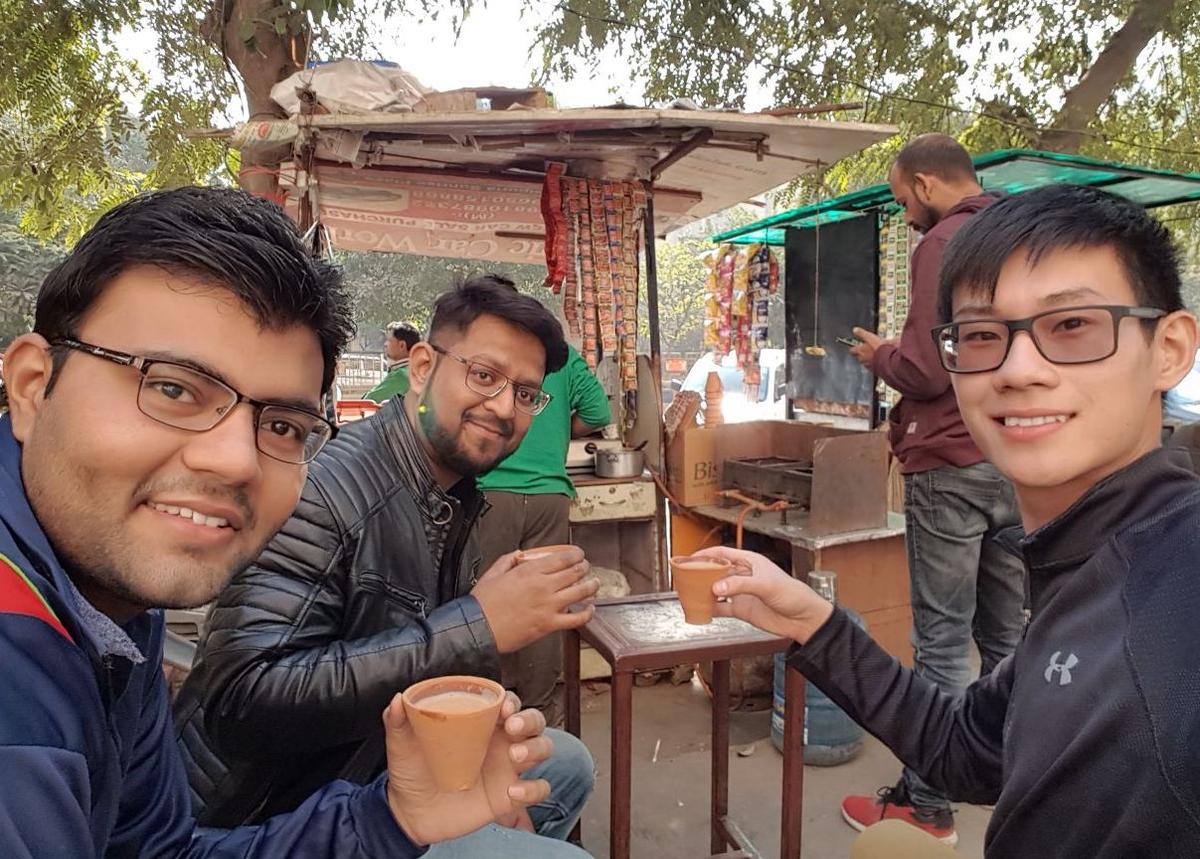
Willy: Overall, if I would have one word to describe what I’ve observed about Indian values, it’s ‘community.’ One of the ways you can see that is how people eat together. When I first arrived, I was surprised when one day at work, one of my team members brought a dish from home, dropped it on the middle of the table, and everyone just started helping themselves. There was no need to ask for permission – it was just understood that it was to be shared.
Lucy: I’ve certainly noticed that too. It’s completely normal to grab food off of someone else’s plate. Also, it would be unusual to order something at a restaurant and keep it entirely to yourself (but this actually makes it more fun, since you get to try a little bit of everything).
This place is a haven for vegetarians. If you want a meat dish in Noida, you need to make a special request for it. In fact, I visited a college campus here that was 100 per cent vegetarian. Even the Subway was serving vegetarian sandwiches only. (The one I had was delicious, by the way).
Any other highlights or observations you want to share before the next time we check in with you?
Lucy: A big highlight was being able to attend the wedding of one of our co-workers. About 20 of us took the day off and headed out for a six-hour bus ride to the village where the bride grew up. No one seemed bothered by how long it took to get there, because much of that time they were dancing in the back of the bus to the music that was blasting on the speakers.
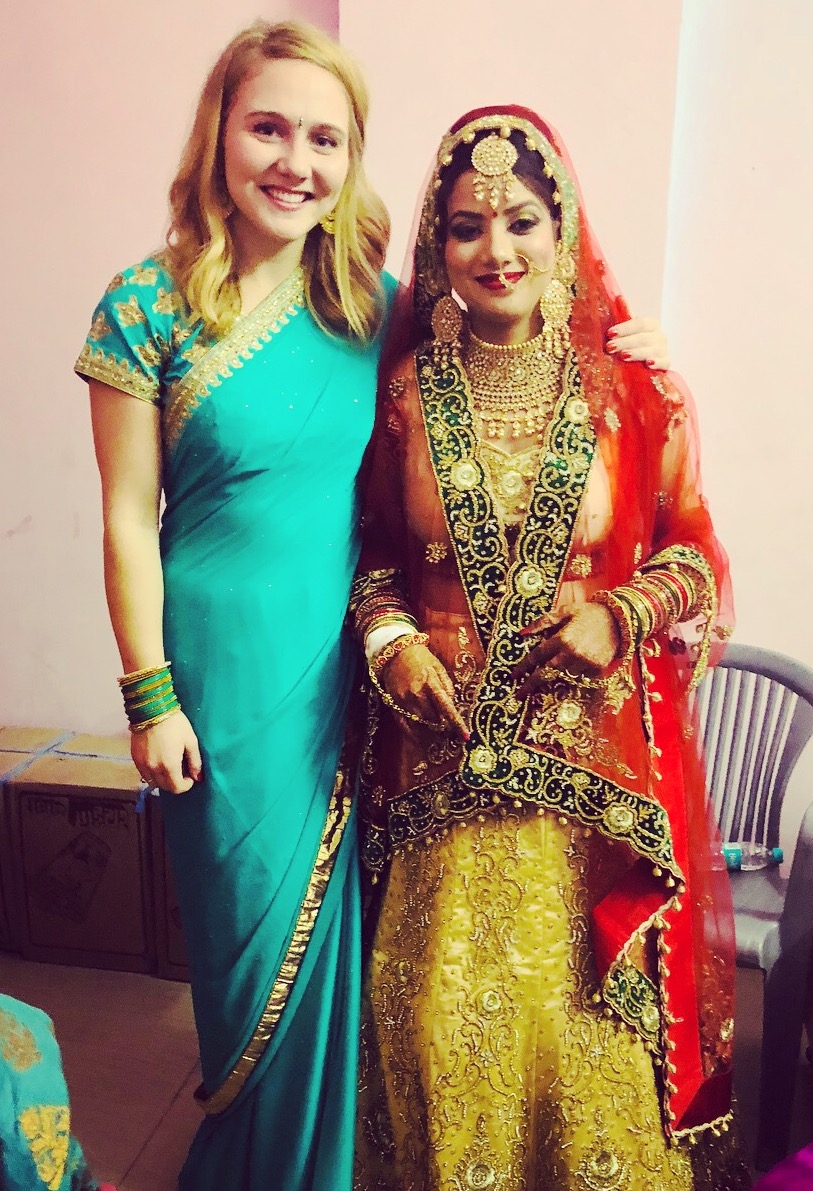
Once the wedding started, the vibrant colours, lights, rituals, and food took my breath away. I am crossing my fingers that I’ll get invited to another wedding while we’re here.
Willy: The wedding was a big highlight for me too. The groom arrives sitting in this grand chariot pulled by horses. His presence is announced by a live band and fireworks. This marks the start of a long night of dancing. What I found surprising is that the first five hours of the wedding is for the guests. Everyone but close family members goes home around 2 a.m. The actual wedding ceremonies then begin and will take close to three days. The guests are just there for the party. The wedding we attended didn’t start until nine at night, and by the time the groom arrived two hours later, everyone was already dancing.
Aso, to add to the point about placing a high value on community, I’ve noticed that family is very important here. Many of my co-workers visit their families as often as they can; if their families live a couple of hours away, they still try to visit them once a week. And they call or text their families on a regular basis to give them regular updates about their work.
Thank you, Willy and Lucy, for this first set of insights. We’ll look forward to checking in with you again soon to learn more about living, working, and having fun in India.
